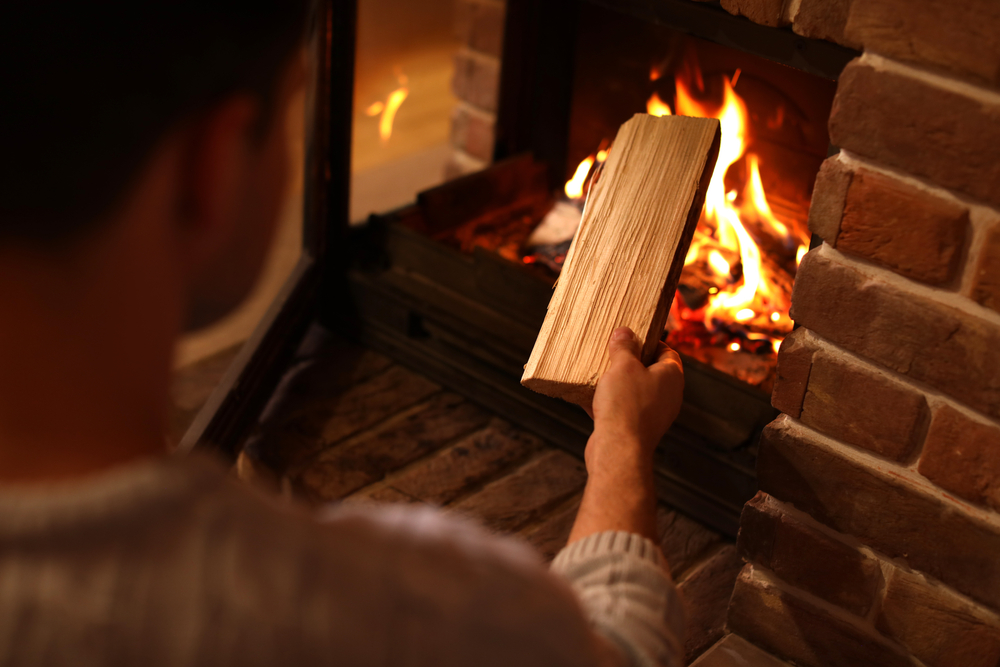After you’ve scheduled your fall fireplace and chimney maintenance, your chimney will be clean and ready for warm evening fires and safely enjoying time with friends and family. However, the small choices that you make every day can impact how quickly dangerous creosote builds up. What wood should you choose for your fireplace?
You Must Use Dry, Seasoned Firewood
When you cut down a tree in the backyard, it’s tempting to immediately repurpose it as firewood. However, that is not a good idea. Because trees are living things, they contain up to 45% water immediately after being cut down. Higher moisture content in wood means increased smoke and creosote accumulation. Wood will be consumed faster, so you’ll use more wood and still end up with a dirtier fireplace.
Using dry firewood that has been properly seasoned will give you a warmer fire that burns for a longer period of time. When purchasing wood or picking up wood, only burn wood that has been allowed to dry for 6 months or longer.
How can you tell wood is dry?
- Faded or dull in appearance
- Signs of dryness (cracking, warping)
- Little bark remaining
- Dry to the touch
Hardwoods vs. Softwoods
Hardwoods are generally preferable to softwoods, as they burn for a longer period of time at higher temperatures. Softwoods burn rapidly and provide you with less heat. When choosing wood, always opt for hardwoods over softwoods. What are some of the most common types of each?
Hardwoods
- Oak
- Birch
- Ash
- Cherry
- Apple
- Maple
- Ironwood
- Hickory
- American Beech
Softwoods
- Pine
- Cedar
Additionally, there are some types of wood and substances that you should never burn due to how they are treated or processed. Burning some of these substances can put dangerous chemicals into the air. These substances include:
- Painted wood
- Polished wood
- Driftwood
- Engineered wood, like particleboard
- Compressed paper products
- Pressure-treated wood
When in doubt, only choose firewood that is from a source and origin that you trust. If you have a pellet stove and are looking for pellets, look for ones with a heat output between 8,000-8,500 BTU and a moisture content of 6.5% or less.
Stay Cozy and Safe This Winter with Clean Sweep Maryland
Call Clean Sweep Maryland today at 410-558-1111 for professional chimney sweep, slate roofing and duct cleaning services designed to keep all your listed properties clean and safe for sellers and buyers. If you are a prospective home buyer or home seller in need of chimney inspection or repairs, we are here to help.



